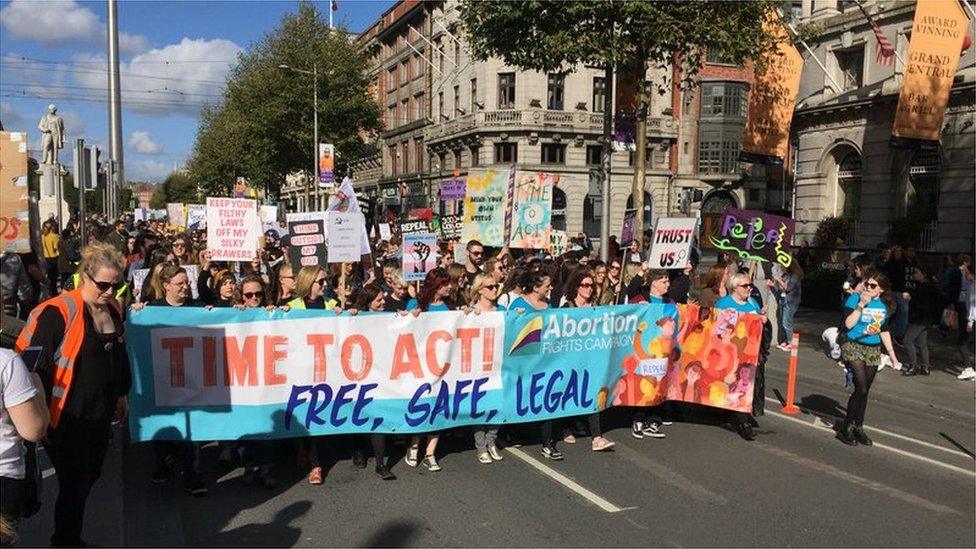Irish abortion law: Tens of thousands march for change
- Published

The country's abortion laws are some of the strictest in Europe
Tens of thousands of people have marched through Dublin to demand change to the Republic of Ireland's abortion laws.
The March for Choice is the first major demonstration since the Taoiseach (Irish prime minister) Leo Varadkar said he wanted to hold a referendum on abortion next year.
The country's abortion laws are some of the strictest in Europe.
Terminations are only allowed when the mother's life is in danger.
The Eighth Amendment of the Irish constitution, introduced in 1983, gives an equal right to life to a pregnant woman and an unborn child.
However, thousands of women a year go abroad to have an abortion. The maximum penalty for accessing an illegal abortion in Ireland is 14 years in prison.
Campaigners gathered at Parnell Square in the city on Saturday afternoon.
A parliamentary body has been established to advise on the wording for the referendum
They made their way through the city to the gates of the Irish parliament.
Anti-abortion activists staged counter events in the city and across Ireland to warn against relaxation of the current law.
A pro-choice rally was also staged outside the Irish embassy in London on Saturday, with campaigners highlighting the numbers of Irish women who have travelled to the UK for an abortion in the last three decades.
The Irish government has set up a parliamentary body to advise on the wording for the referendum.
The Committee on the Eighth Amendment of the Constitution is considering a report from Judge Mary Laffoy, who chaired a specially-designed Citizens Assembly of 99 people who deliberated and voted on the issue.
The assembly called for the Eighth Amendment to be replaced or amended.
It said it should be replaced by a provision which placed the onus on politicians to pass laws on termination of pregnancy, rights of the unborn and pregnant women's rights.
- Published22 April 2017
- Published26 September 2017
- Published8 March 2017